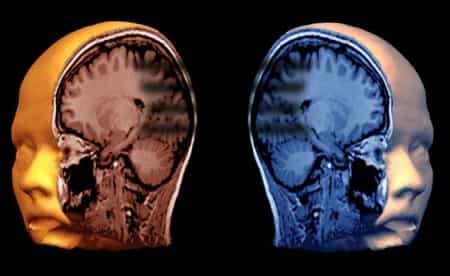Yesterday World Parkinson's Day was celebrated, a conference organized in the Campidoglio by the Italian Parkinsonian Association (AIP). The data reported is certainly not comforting: in Italy alone there are four hundred thousand people with Parkinson's disease, a disease that affects 3 people out of every thousand (about 1% of the over 65s) and which increasingly affects young people, and costs the national health system over 2 billion euros a year. The disease is steadily increasing worldwide: in Europe alone it is estimated that the number of patients will increase from 1 255 000 to 1 482 000 in 2012. The origin of the disease lies in the loss of a group of neurons, located in the area of the brain called the "black substance", which produce the neurotransmitter dopamine. It is precisely the reduction of dopamine that causes the typical symptoms of the disease: tremor, slow movement and stiffness of the limbs. In recent years, research has made progress, but much remains to be done in terms of assistance to patients and above all to the relatives of the patients themselves. «In San Francisco – explains Fabrizio Stocchi (director of the Parkinson Center of the IRCCS San Raffaele in Rome) – the experimentation on man of gene therapy has started, which appears to be very promising. A virus of the HIV family is used, which modifies the RNA of the host organism, but making it "good", as it manages to induce the RNA to make dopaminergic cells grow. At the end of 2008 we should have, I believe, the first results.» «In Italy – continues Stocchi – the law prohibits the use of embryonic stem cells, which are precisely the ones that we can use on the central nervous system. The adult ones give big problems of differentiation. A viable way may be to use stem cells as a reservoir from which to take useful elements, such as growth factors, RNA and dopamine. What is certain is that so far no stem cells have ever been implanted in the brain, but that if it comes to the possibility of such a transplant, it will be Parkinson's, because it is a limited group of brain cells that are damaged by the disease. » [illustration by Frank Tong (2005)]
You may also like
New therapeutic frontiers for Multiple Sclerosis
From personal experience I have been able to verify that in recent years Multiple Sclerosis (MS) increasingly affects early onset, therefore very young people, but I have also been able to appreciate, having worked in a Research and Treatment Center for Multiple Sclerosis, that State-of-the-art therapies visually slow its progression, thus also increasing the quality… Continua a leggere New therapeutic frontiers for Multiple Sclerosis
A simple eye exam can track the progress of multiple sclerosis
A quick scan of the eye may offer a simple and painless way for multiple sclerosis patients to track the progress of the disease. Researchers at the Johns Hopkins Multiple Sclerosis Center in Baltimore have discovered that by observing the nerve fibers in the back of the retina, one can get a fairly accurate picture… Continua a leggere A simple eye exam can track the progress of multiple sclerosis
Depression is the first sign of Parkinson's
Here is the news that many have been waiting for, at least anyone who has a relative or friend affected by this terrible disease. The diagnosis of Parkinson 's can now be anticipated and perhaps caught in time and treated. At the XI European Congress of Neurology in Brussels it was in fact said that… Continua a leggere Depression is the first sign of Parkinson's
Deep Brain Stimulation for mental disorders
The idea that deep brain stimulation could become useful in the treatment of a variety of drug-resistant mental disorders is nothing new. Until now it has been mainly used for the treatment of extrapyramidal and cerebellar disorders such as ataxia and Parkinson's . The American Association of Neurosurgeons (AANS), is studying and evaluating deep brain… Continua a leggere Deep Brain Stimulation for mental disorders
